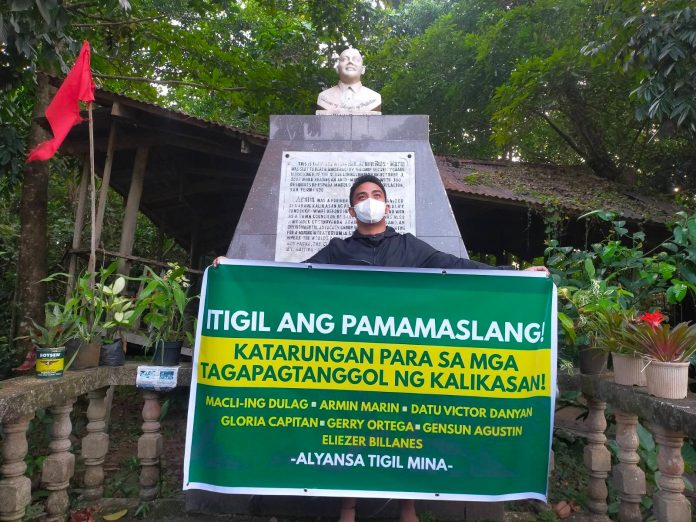The Philippines has retained its grim title as the most dangerous country in Asia for land and environmental defenders, with 281 individuals killed since 2012.
This year’s Global Witness report showed that 11 of the 16 environmental defenders killed in Asia in 2022 were in the Philippines while three took place in Indonesia and two in India.
Those who were killed in the country last year were peasant organizer Ericson Acosta, Joseph Jimenez, Elgyn Balonga, Robert Aragon, Tirzo Añar, Sivestre Fortades Jr., Rose Marie Galias, Eugene Lastrella, and Indigenous children volunteer teachers Chad Booc and Gelejurain Ngujo II.
For 10 consecutive years, the Philippines has been identified by Global Witness as the “worst place in Asia” for environmental activists.
A third of the total 281 killings from 2012 to 2022 in the country “were linked to defenders speaking out against company operations linked to the mining sector”.
There have been 443 reported killings of land and environmental defenders across Asia since 2012. The report said the killings occurred in 18 countries, “the majority of which are rated as ‘closed’ or ‘repressed’ environments”.
Global Witness stressed that “underreporting of attacks remains a significant challenge” in the region. It also noted the “growing attacks” on activists opposing dirty energy sources in the Phillippines and Vietnam.
Jaybee Garganera, national coordinator of Alyansa Tigil Mina, condemned the “continued impunity” against environmental activists under the administration of President Ferdinand Marcos Jr.
He said communities with environmental issues “continue to face harassment, violent dispersals, red-tagging, criminalization, and threats to their lives and livelihoods, as they continue to resist the destruction of their land and water resources”.
Recently, two young women environmental defenders were allegedly abducted in Orion town in Bataan province by four individuals in a grey vehicle.
On September 2, 22-year-old Jhed Tamano, coordinator of EBF’s Community and Church Program in Manila Bay, and 21-year-old Jonila Castro, a community organizer from AKAP Ka Manila Bay, were reported missing.
The two are the 12th and 13th victims of enforced disappearance, following the case of Cedrick Casano, under the administration of President Ferdinand Marcos Jr.
Garganera urged Congress to pass the Human Rights Defenders Bill, which he said will ensure the protection of human rights defenders, including environmental and land rights defenders.
Rodne Galicha, executive director of Living Laudato Si Philippines, said the country must end weaponizing laws and using them against activists.
Galicha, who is a victim of red-baiting, harassment, and vilification, urged the government to scrap the Anti-Terrorism Act and Executive Order 20, which created the National Task Force to End Local Communist Armed Conflict (NTF-ELCAC).
“There is a prevailing culture of impunity and it is backed by policies that allow state forces to tag environmental defenders as communist or terrorist. This makes us more vulnerable to threats, harassment, illegal arrests, and even death,” he said.









